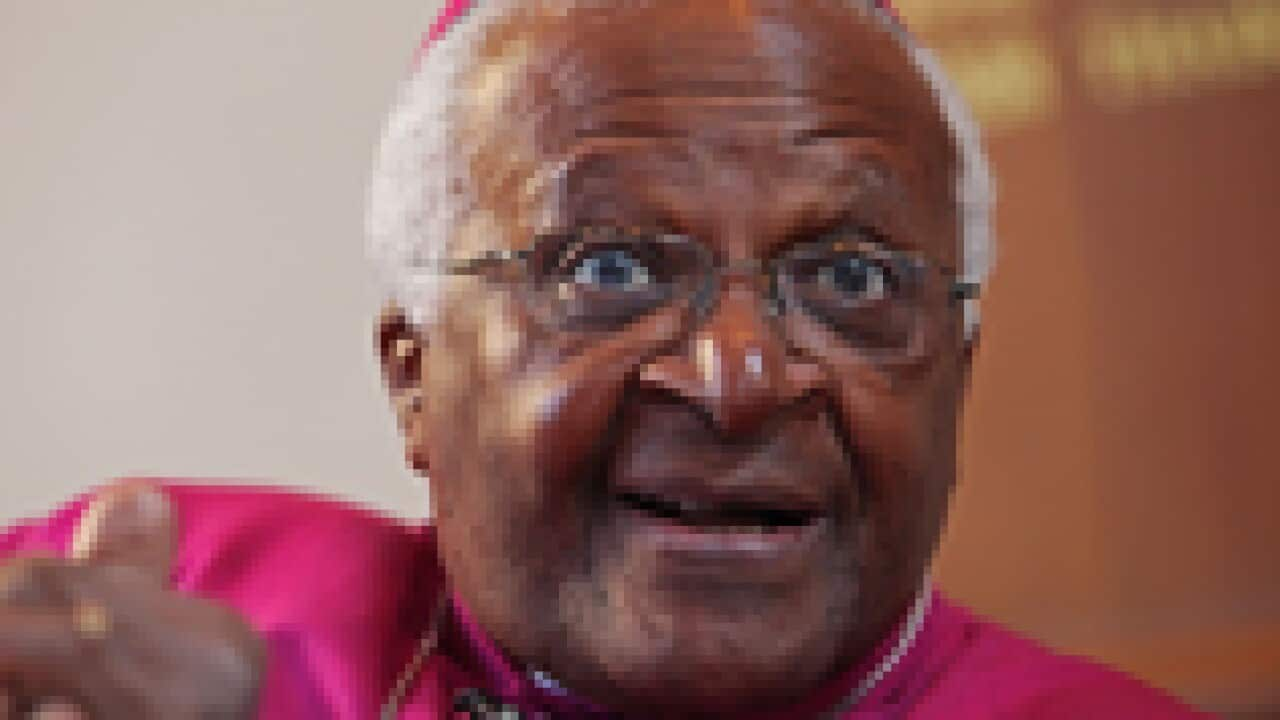Archbishop Desmond Tutu is stepping down from public life, as he celebrates his 79th birthday.
The man described as the "conscience" of South Africa was a prominent voice during the country's struggle against white minority rule.
He has since been the voice of reconciliation in a number of regional conflicts.
But the Nobel Peace prize winner now says he wants to make way for a new generation of leaders.
However, his office told Sky News that he would continue his work with The Elders - a group appointed by Nelson Mandela to tackle the world's most pressing problems.
Campaigning work for The Elders has seen him travel extensively to the Middle East, Darfur and Zimbabwe.
It is Tutu who labelled South Africa the "rainbow nation of God" to celebrate its diverse cultures.
He received the Nobel Peace Prize in 1984, then used his new international stature to step up the campaign against apartheid.
Tutu led calls for punitive sanctions against South Africa, remaining one of the few strong voices inside the country while other activists were imprisoned or forced to operate abroad.
He was ever-present during the turbulent final years of apartheid and the ensuing transition to majority rule, praying and sermonising after massacres and then heading the Truth and Reconciliation Commission.
For more than two years the panel listened to people testifying about torture, killings and other atrocities during the apartheid era.

